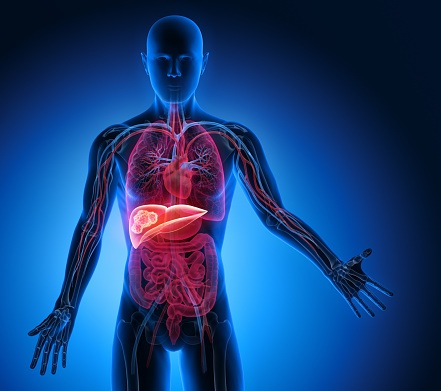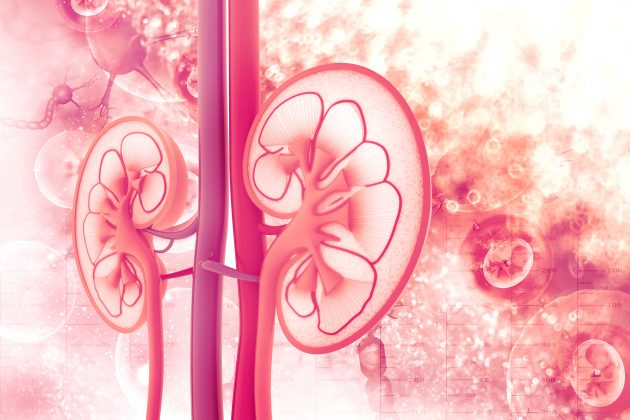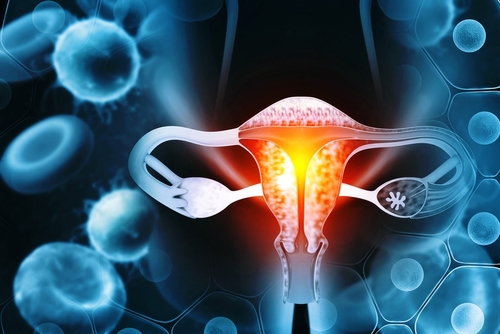Patients with decompensated cirrhosis and ascites may develop type 1 hepatorenal syndrome (HRS-1), characterized by rapidly progressing kidney failure. If left untreated, HRS-1 is often fatal, with a median duration of survival of weeks to months. Reversal of the hemodynamic abnormalities associated with advanced cirrhosis may be achieved with pharmacotherapy with vasopressors to improve renal perfusion and function in patients with HRS-1.
Terlipressin is a synthetic vasopressin analogue with vasoconstrictor activity in the splanchnic and systemic vasculature. The efficacy and safety of terlipressin in patients with HRS-1 have been examined in previous, multicenter, placebo-controlled trials. It is used to treat patients with HRS-1 in many parts of the world and is part of the clinical practice guidelines in Europe.
Florence Wong, MB, BS, MD, and colleagues conducted the CONFIRM trial to confirm the efficacy and safety of terlipressin plus albumin, compared with placebo plus albumin, in adults with cirrhosis and HRS-1. Results of the phase 3 trial were reported in the New England Journal of Medicine [2021;384(9):818-828].
Patients were randomly assigned in a 2:1 ratio to receive terlipressin or placebo for up to 14 days. Concomitant use of albumin was strongly recommended for both groups. The primary end point of interest was verified reversal of HRS-1, defined as two consecutive serum creatinine measurements of 1.5 mg per deciliter or less at least two hours apart up to day 14 and survival without renal replacement therapy (RRT) for at least 10 days following treatment completion. To account for multiple comparisons, four prespecified secondary end points were analyzed with the Hochberg procedure: (1) HRS reversal, defined as serum creatinine level of 1.5 mg per deciliter or less; (2) durability of HRS reversal, defined as HRS reversal without RRT to day 30; (3) HRS reversal among patients with systemic inflammatory response syndrome; and (4) verified HRS without recurrence of HRS by day 30.
Data on nonserious adverse events were collected up to 7 days following the end of the treatment period, and data on serious adverse events were collected up to 30 days following the end of the treatment period. Mortality was documented for up to 90 days following the first dose of terlipressin or placebo.
The trial was conducted from July 13, 2016, to July 24, 2019, at 60 sites in the United States and Canada. The total cohort included 300 patients who were randomized to the terlipressin group (n=199) or the placebo group (n=101). The two groups were generally well balanced at baseline in clinical and demographic characteristics.
Concomitant albumin was administered in 165 patients (83%) in the terlipressin group (mean total dose per person, 199.4 g over a median of 5.0 days) and 92 patients (91%) in the placebo group (mean total dose, 239.5 g over a median of 5.5 days). Sixty-one percent of the terlipressin group (n=121) and 60% of the placebo group (n=61) had previously received midodrine and octreotide.
The primary end point (verified reversal of HRS) was achieved by a significantly higher percentage of patients in the terlipressin group than in the placebo group (32% [63 patients] vs 17% [17 patients]; P=.006); 17 patients in the terlipressin group and nine in the placebo group were considered to be unclassifiable with respect to the primary end point.
Three of the four secondary end points reached statistical significance: HRS reversal, defined as any serum creatinine level of 1.5 mg per deciliter or less during the first 14 days, was reported in 39% (78 patients) of the terlipressin group and 18% (18 patients) in the placebo group; P<.001; HRS reversal without RRT by day 30 was reported in 34% (68 patients) of the terlipressin group and 17% (17 patients) of the placebo group; P=.001; HRS reversal among patients with systemic inflammatory response syndrome (84 patients in the terlipressin group and 48 patients in the placebo group) was reported in 31 patients in the terlipressin group (37%) and three patients in the placebo group (6%); P<.001. The fourth secondary end point, verified HRS reversal without recurrence by day 30, was reported in 26% (52 patients) of the terlipressin group and 17% (17 patients) of the placebo group; P=.08.
Over a mean duration of follow-up of 55.3 days, 23% of patients (n=46) in the terlipressin group received a liver transplant; in the placebo group, 29% (n=29) of patients received a liver transplant over a mean duration of follow-up of 56.1 days. There were no differences between the two groups in overall or transplantation-free survival up to 90 days.
By day 90, 101 patients in the terlipressin group (51%) died, compared with 45 patients in the placebo group (45%) (difference, 6 percentage points; 95% confidence interval, –6 to 18).
Adverse events of any severity were reported in 88% of patients in the terlipressin group (176/200) and 89% of the placebo group (88/99). In the overall safety population (299 patients), the most frequently reported adverse events were abdominal pain, (45 patients [15%]), nausea (42 patients ]14%]), diarrhea (33 patients [11%]), hepatic encephalopathy (33 patients [10%]), and dyspnea (30 patients [10%]).
More patients in the terlipressin group reported abdominal pain, nausea, diarrhea, or respiratory failure, compared with the placebo group (14 % [28 patients] vs 5% [5 patients]). The two groups were similar in percentage of patients who had dose interruptions associated with adverse events (7% in each group); the percentage of patients with permanent discontinuation of the assigned regimen due to adverse events was higher in the terlipressin group compared with the placebo group (12% [24 patients] vs 5% [15 patients]). Death within 90 days due to respiratory disorders occurred in 11% of the terlipressin group (22 patients) and 2% of the placebo group (2 patients).
Limitations to the trial cited by the authors included the inability to assess between-group differences in survival, and the lack of an assessment of prespecified outcomes after liver transplantation was not performed.
In conclusion, the authors said, “In the CONFIRM trial, the use of terlipressin plus albumin was more efficacious than placebo plus albumin in producing verified reversal of HRS in patients with decompensated cirrhosis and HRS-1. Terlipressin was associated with serious adverse events, including respiratory failure.”
Takeaway Points
- Researchers reported results of a phase 3 trial to designed to confirm the efficacy and safety of terlipressin plus albumin in adults with type 1 hepatorenal syndrome (HRS-1).
- A total of 300 patients were randomized in a 2:1 ratio to the terlipressin group (n=199) or the placebo group (n=101). The primary end point, verified reversal of HRS, was reported in 32% of patients in the terlipressin group versus 17% of patients in the placebo group.
- More adverse events occurred with terlipressin than with placebo.
Credit: Original article published here.










